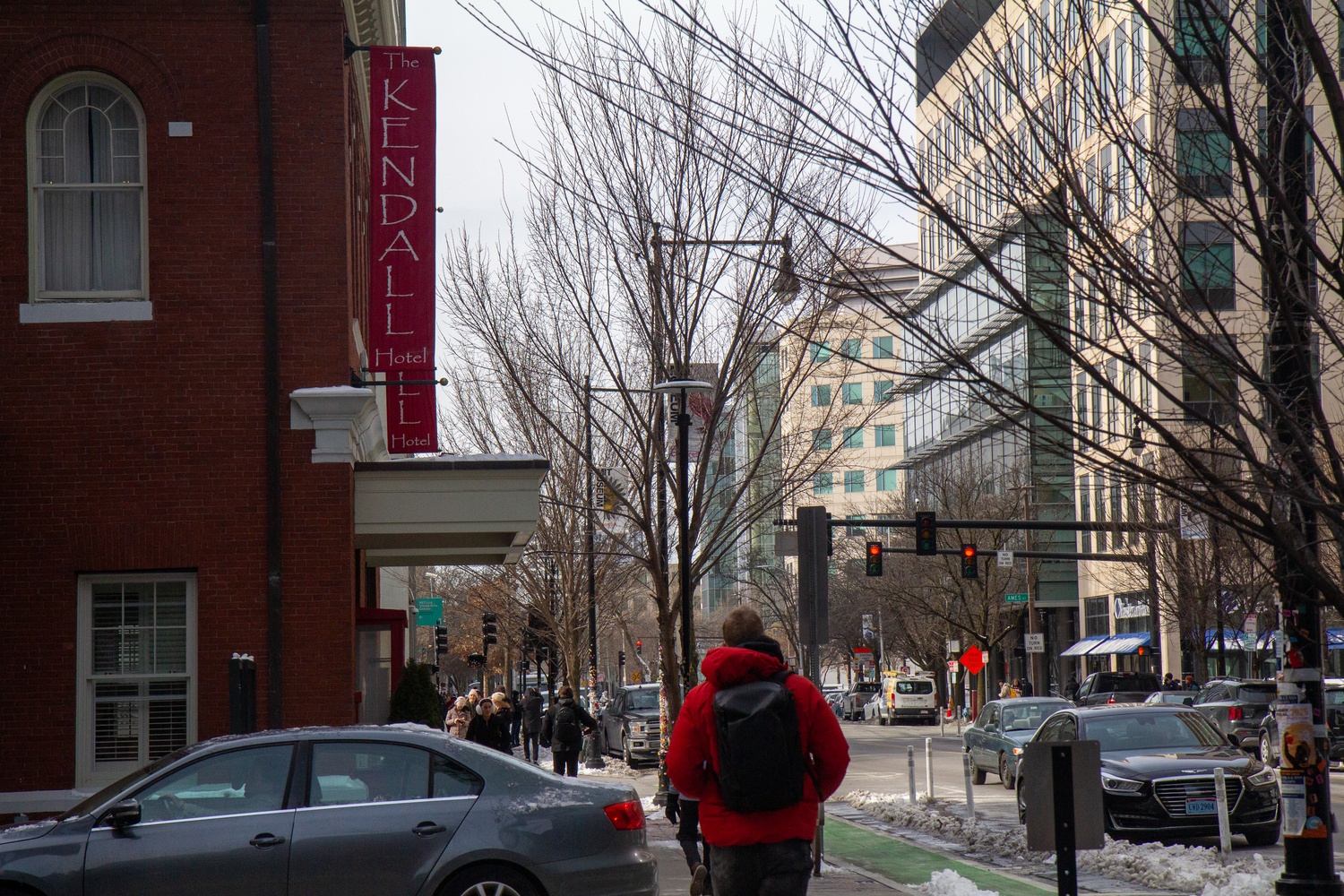
News
When Professors Speak Out, Some Students Stay Quiet. Can Harvard Keep Everyone Talking?

News
Allston Residents, Elected Officials Ask for More Benefits from Harvard’s 10-Year Plan

News
Nobel Laureate Claudia Goldin Warns of Federal Data Misuse at IOP Forum

News
Woman Rescued from Freezing Charles River, Transported to Hospital with Serious Injuries

News
Harvard Researchers Develop New Technology to Map Neural Connections
Cambridge Biopharma Firm Sage Therapeutics Sues Partner Biogen After Buyout Offer

Cambridge-based biopharmaceutical company Sage Therapeutics filed a lawsuit against their partner, the biotechnology company Biogen, after rejecting their $469 million buy-out proposal late last month.
Sage’s board wrote in late January that the offer “significantly undervalues” the company, which is currently working with Biogen towards commercializing ZURZUVAE, the first and only oral FDA-approved treatment for postpartum depression.
Biogen’s offer is significantly lower than Sage’s $504 million cash holdings according to their 2024 financial results report, which was published Tuesday.
Sage wrote in their 2024 annual report that their rejection of Biogen’s proposal “may adversely impact our relationship with Biogen, and our efforts to commercialise ZURZUVAE.” The company has incurred net losses every year since its inception, except for in 2020 when a license agreement with Biogen increased revenue.
Biogen, which currently owns 10 percent of Sage, first made a public offer in mid-January proposing to buy the remaining 90 percent of Sage’s shares for $7.22 each. When Biogen initially invested in Sage, it paid $104.14 for each share.
Just under a week after this year’s offer, Sage filed a lawsuit against Biogen, “seeking preliminary injunctive relief” to enforce an agreement that prevents Biogen from publicly disclosing any proposals for a buyout.
A Biogen spokesperson, however, said in an interview with Endpoint News that the company was required to publicly disclose the letter due to their existing equity holdings in Sage.
Biogen and Sage both declined The Crimson’s requests for comment.
The strain on the partnership is the latest of a series of challenges faced by Sage, which saw several clinical failures and lackluster sales last year.
In November, Sage announced that it was abandoning development of Dalzanemdor, a drug intended to treat neurological disorders like Alzheimer’s and Parkinson’s, after it failed to meet goals in clinical studies.
Just a few months before, Sage decided no longer to pursue approval of ZURZUVAE for treatment of major depressive disorder. The drug was previously rejected by the FDA for treatment of MDD in 2023. The current designation of ZURZUVAE as treatment for postpartum depression significantly narrows the drug’s market.
Although the company undertook several restructuring initiatives, including laying off over 100 employees in October 2024, the resulting savings in research and development were not enough to offset total company costs.
According to their annual report, Sage’s net loss was $400.7 million in 2024, and the accumulated deficit was $3.0 billion as of December.
The company expects that existing cash and assets are sufficient to fund currently planned operations for the next 12 months, but “anticipates it will require additional financing to fund its future operations,” Sage wrote in their annual report.
Although Sage wrote that they are also exploring “strategic alternatives” with the help of Goldman Sachs, the company's future remains uncertain.
—Staff writer Stephanie Dragoi can be reached at stephanie.dragoi@thecrimson.com.
—Staff writer Thamini Vijeyasingam can be reached at thamini.vijeyasingam@thecrimson.com. Follow her on X @vijeyasingam.
Want to keep up with breaking news? Subscribe to our email newsletter.
